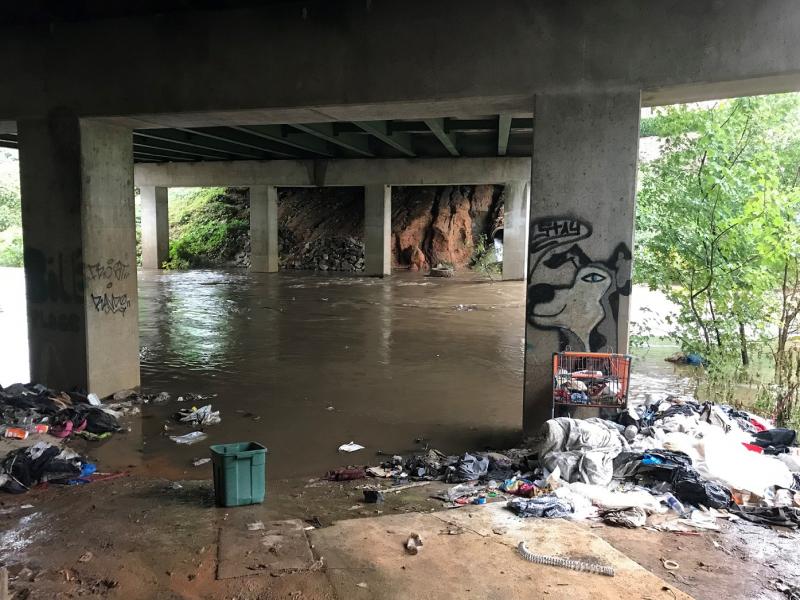February 29 is Crossover Day in the Georgia General Assembly, with lawmakers clambering over each other to advance their bills of choice before the legislative session comes to a close. Except Senator Randy Robertson (R), sponsor of the proposal to dramatically expand cash bail, which was one of the only major bills to already sail onward to the governor’s desk. Nothing brings lawmakers together quite like punishing the poor.
There are currently 14 charges for which the state of Georgia requires cash bail. Senate Bill 63 would add 30 new ones, then forbid people accused of those charges from receiving almost any assistance from charities or nonprofits, or even loved ones. If they can’t pay their assigned bail, they will languish in the death traps that are Georgia’s overcrowded jails. Most of the 30 charges are misdemeanors, and wouldn’t be punishable by incarceration if the person were actually convicted.
“I think if the individual honestly conveyed to the judge that they were basically destitute, then I think there are ways for the individual to make bond,” Robertson stated at a Committee on Public Safety hearing earlier in February, in defense of his bill to legally abolish most ways for destitute individuals to make bond.
“The criminal trespass may have been vagrancy, in order to break into an abandoned house that belonged to someone else in order to stay in it, and in cases like that most likely the charge would be dismissed,” he continued, in a tone concerningly devoid of sarcasm. “But in Georgia being broke is not a viable defense for committing a crime.”
Many groups and individual humans out there post bond for people who can’t afford it on their own, but SB 63 would cap their efforts at three recipients each per year. Defendants who can’t afford bail must deal only with approved bail bondsmen. Except defendants who are undocumented, whom even the bail bondsmen are forbidden from helping.
More than going after people for shoplifting and squatting, SB 63 is after people who have shoplifted and squatted before.
SB 63 would undo many judicial reforms enacted under former Governor Nathan Deal (R). ACLU Georgia has vowed to sue if Governor Brian Kemp (R) signs the bill into law, stating that “[no]t only is SB 63 bad policy, it is illegal. It unconstitutionally criminalizes poverty and restricts conduct protected by the First Amendment.”
The legislature obviously doesn’t expect defendants to be able to personally produce thousands of dollars at the ready, or SB 63 wouldn’t be aimed specifically at people who do not have money. Many of the 30 new bail-restricted charges describe activities people engage in entirely because they have been chronically without money. “Theft by taking, [on] the person’s second or subsequent offense”; “criminal trespass, [on] the person’s second or subsequent offense.”
More than going after people for shoplifting and squatting, SB 63 is after those “habitual violators” who have shoplifted and squatted before. It also targets those who would disrupt the accumulation of wealth by the wealthy, as Stop Cop City organizers did in 2022. But for the most part, constituents who are not one economic hiccup away from being sent to the gulag are often perfectly willing to accept the rules of tyrants, who vow to keep them safe from the people with no money or resources.
Introducing someone into the criminal-legal system rarely improves the trajectory of their life.
What options do people have, when you prosecute them for having nothing? They could run, and join the many disenfranchised souls dispersed in rural encampments across the state, but of course “fleeing or attempting to elude a police officer” is also among the 30 proposed bail-restricted charges. Missing a court date is another, for people who’ve missed court dates before. Jumping bail has been assigned mandatory bail all along.
The problem is obviously not that Georgia has too many dangerous criminals. The problem is that people have nowhere to live. Rather than house them, the state intends to profoundly destabilize their life and heap on new sources of debt. If that doesn’t improve their housing prospects, they don’t deserve to be free.
Introducing someone into the criminal-legal system rarely improves the trajectory of their life. A couple of days in jail, even without a conviction, is the off-ramp from the highway of “contributing to society,” as lawmakers like to say.
Still, it isn’t all bad. The thousands of us who have served decades inside Georgia Department of Corrections prisons are in fact heartened by SB 63’s breakaway success. If the prison population grows rapidly enough to compel the Georgia State Board of Pardons and Paroles to actually grant some of us parole, we would gladly give up our beds to needy newcomers.
Photograph via City of Brookhaven, Georgia





Show Comments